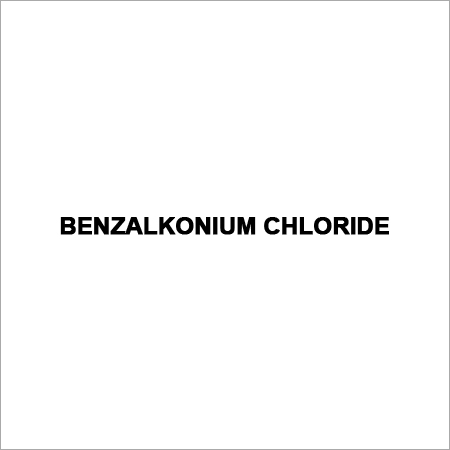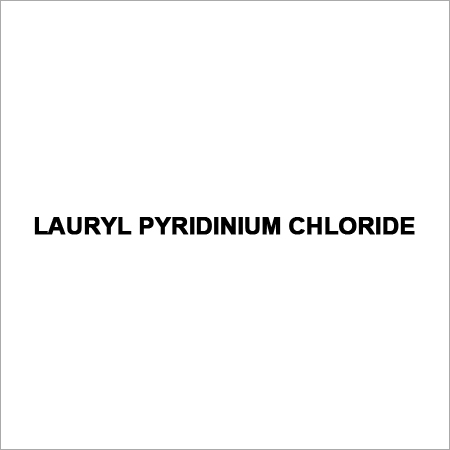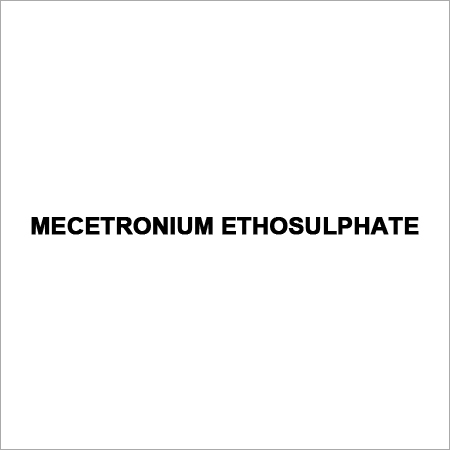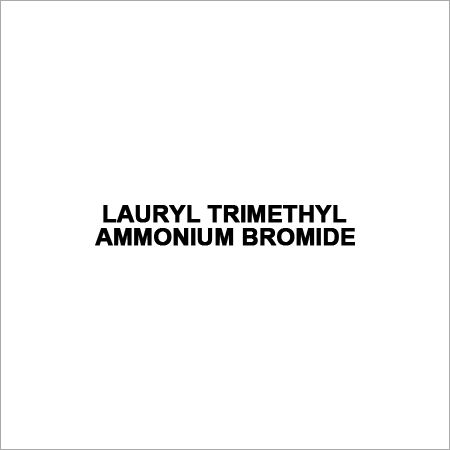Benzalkonium Chloride
Benzalkonium Chloride Specification
- Storage
- Room Temperature
- Place of Origin
- India
- Molecular Formula
- C27H42NO2.Cl
- CAS No
- 63449-41-2
- Grade
- Medicine Grade
- Purity
- 98%
- Application
- Pharmaceutical Industry
- Color
- White
- Form
- Powder
Benzalkonium Chloride Trade Information
- Minimum Order Quantity
- 25 Kilograms
- Supply Ability
- 1000 Kilograms Per Month
- Delivery Time
- 1 Week
- Main Export Market(s)
- Central America, North America, South America, Eastern Europe, Western Europe, Middle East, Asia, Australia, Africa
- Main Domestic Market
- All India
About Benzalkonium Chloride
Benzalkonium chloride is a chemical that has many applications for its antimicrobial properties. It can be found in many household cleaning products, soaps, hand wipes, sanitizer, ointments, personal care products and cosmetic products as it acts as a preservative, surfactant and antibacterial agent. Its properties are beneficial in protecting the products from spoiling. With a chemical formula of C27H42NO2.Cl or C27H42ClNO2, it works by killing microorganisms and preventing them to grow further. Its contact can cause irritation to the eyes and skin.
FAQ
1. Benzalkonium chloride: What is it?
Ans - The antibacterial and cationic surfactant benzalkonium chloride (BAC) has a wide range of uses, including home cleaning, sanitising, and as a preservative in cosmetics and medications.
2. What purposes does benzalkonium chloride serve?
Ans - As an antiseptic, disinfectant, deodorizer, and preservative, benzalkonium chloride is employed. In addition, it is used to destroy viruses, bacteria, and fungi as well as to regulate the growth of algae and other microbes.
3. Is it safe to use benzoalkonium chloride?
Ans - Although most people are believed to be safe when exposed to benzalkonium chloride, some persons may have skin rashes or allergic responses. It's crucial to thoroughly read the product's instructions and use safety gloves whenever handling the item.
4. Can viruses be destroyed by benzoalkonium chloride?
Ans - Yes, Benzalkonium Chloride is effective against a variety of viruses, including as rotavirus, coronavirus, rhinovirus, and influenza.
5. What negative consequences does benzalkonium chloride have?
Ans - The usage of benzalkonium chloride is generally regarded as safe. It should not be used in the eyes or on open wounds since some people may have skin irritability or allergic reactions when exposed to it.


Price:
- 50
- 100
- 200
- 250
- 500
- 1000+
More Products in Pharmaceutical Agrochemical Spe Category
Ethyl Triphenyl Phosphonium Acetate 70% Solution
Minimum Order Quantity : 25 Kilograms, ,
CAS No : 35835940
Purity : 98%
Grade : Other, Industrial Grade
Storage : Room Temperature
Place of Origin : India
Lauryl Pyridinium Chloride
Minimum Order Quantity : 25 Kilograms
CAS No : 104745
Purity : 99%
Grade : Other, Industrial Grade
Storage : Room Temperature
Place of Origin : India
Mecetronium Ethosulphate
Minimum Order Quantity : 25 Kilograms, ,
CAS No : 3006108
Purity : 99%
Grade : Medicine Grade
Storage : Room Temperature
Place of Origin : India
Lauryl Trimethyl Ammonium Bromide
Minimum Order Quantity : 25 Kilograms
CAS No : 1119944
Purity : 98%
Grade : Medicine Grade
Storage : Room Temperature
Place of Origin : India

 Send Inquiry
Send Inquiry






 English
English Spanish
Spanish French
French German
German Italian
Italian Chinese (Simplified)
Chinese (Simplified) Japanese
Japanese Korean
Korean Arabic
Arabic Portuguese
Portuguese